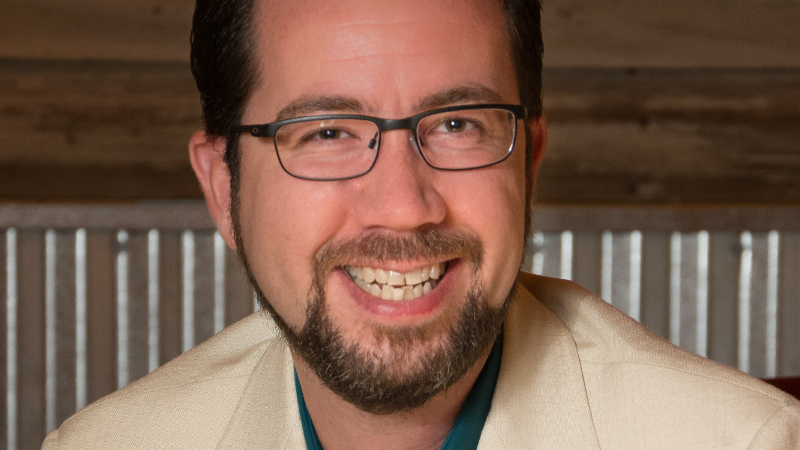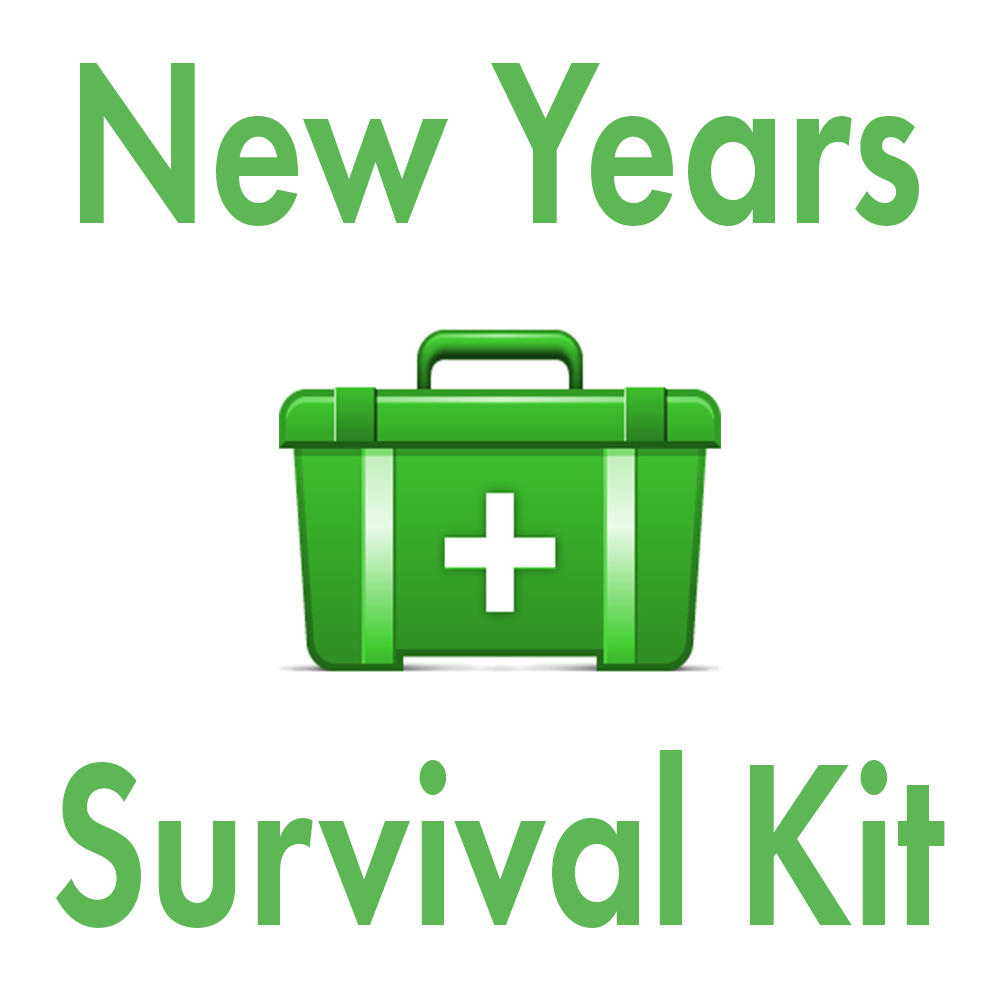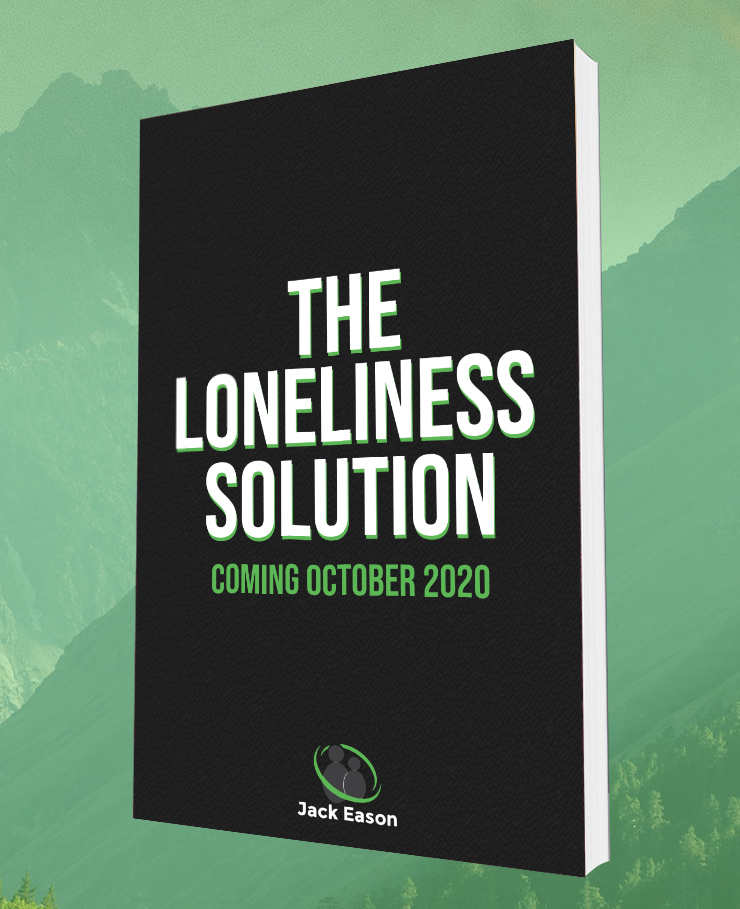
January Newsletter
|
December Newsletter
|
7 Steps Leaders Must Take
#7- Acknowledge what you do and don’t know.
One of the greatest obstacles is pride. I see and talk to a lot of executive directors who refuse to acknowledge what they don’t know. It’s okay to fake it in some industries in the world, but in an industry that deals with life and death every day, I’m not sure that’s a good philosophy to operate by. If we don’t know something, it’s okay to admit it. Find someone who has the answers. Some of the best leaders I’ve had the privilege to work with know very little but surround themselves with people who know a whole lot. They look awesome, because they can find an answer to any question. They simply ask someone they know who will have the answer they need. Being a leader doesn’t mean we need to be all-knowing about everything our organizations have to accomplish.
You have probably heard about the quadrants of knowledge. Two of the quadrants are unconscious incompetence and conscious incompetence. Here are their definitions:
• Unconscious Incompetence – We don’t know that we don’t know. That’s okay. That’s just generally being ignorant. Some people don’t like the word ignorant. They think it’s offensive. It’s okay to be ignorant. If you don’t know that you don’t know, pray that God will let you know that you don’t know.
• Conscious Incompetence – We know we don’t know, and it bothers us. That’s where we need to live. We need to ask someone else for the help we need, because we just don’t know. We want to move people on our team to that point, which requires delegation and developing.
Being a leader means acknowledging what we do know, doing that well, delegating and developing other people in our centers to help do those things we do know well, and then recognizing what we don’t know and finding other people who can help us get that done.
There are so many things that can paralyze us as leaders, our volunteers and team members, or forward movement in our organizations. The key is to move past those fears, lead with confidence, and network with others so we can find the answers we need when we need them. We must trust in ourselves and our team in order to achieve our mission.
7 Steps Leaders Must Take
#6- Learn to prioritize.
A lot of the reason we’re paralyzed in fear is because we’re not sure what the next thing is we’re supposed to do. There’s nothing wrong with stopping and praying and waiting on the Lord. But, sometimes our reason for stopping is that we haven’t done our homework. We haven’t done enough research or given it enough thought. We haven’t prioritized what we need to be doing. Part of the reason we’re so busy and accomplishing so little is because we failed to prioritize.
If you write down what you’ve done all week and look back, it’ll help you prioritize. You’ll realize where you were doing one thing but should have been doing the other. I usually take about ten minutes before I put my head on the pillow at night to pull out my cell phone and note the top five things I need to do in the morning. This helps me prioritize so I’m not getting out of bed in the morning wondering what I need to do first. I’ve already thought through that. I’m a night person. You may choose to get up a little earlier and do yours in the morning. Find something that will help you learn to prioritize. It may be the old-school Daytimer. It could be some software.
As the leader of the team, I would encourage you to model this. I sat down with our millennial a month ago, and he asked how I was getting all this stuff done. I pulled up my calendar on my phone and showed him. He said, “I didn’t realize this thing had a calendar. I didn’t even realize this thing could make phone calls. I only knew it could do apps and Tweet and Twitter and stuff.” Ok, not really, but he wasn’t effectively using his smart phone. I told him I put stuff on the calendar so I know what my plan is. I’m not just getting in my car and running fifty miles across town and missing six stops along the way. That’s what we do, so we need to learn to prioritize.
Another way we can prioritize is to gather with our team and our board for an annual planning retreat where we’ll map out what our priorities are and what we are going to accomplish in the new year. Build a timeline and then work that timeline. This will also help provide accountability for the rest of the staff. “Here’s where we’re headed together.” A lot of times that’s all in one person’s brain. The team will be standing around thinking they’d like to move forward and prioritize, but they aren’t sure what they’re supposed to be doing or where we’re headed.
Delegate. Sometimes we have too much on our list. I’m a control freak, so I like to do it all myself. I know I’m going to do it right. That’s a great philosophy, but it isn’t biblical. Our non-profits will be on the planet long after we’re done serving in them, but if we don’t lay the groundwork for that to happen, shame on us. It will take longer on the front end to delegate. But, in the long run, it will be more beneficial.
I have a friend who works for Focus on the Family Leadership Institute. Great guy, Dr. Kneeland Brown. He pushed me on the delegation aspect one time. He said there are three Ds when it comes to leadership. The first one is Do. We can do and do and do and do. The second is Delegate. We begin to pass the baton to somebody. But if we really want to go to the next level with our organizations, we need to Develop.
Delegate is where you tell somebody enough and they have their task list. They run out and come back, “Okay, I got it done. Now what?” They haven’t been developed enough in their thinking. You haven’t imparted the vision to a degree that they can think for themselves. We want people who are able to think for themselves. We want team members who can help us execute the mission and begin to think like leaders
7 Steps Leaders Must Take
#5 Develop a time management plan.
Speaking of time, we all have the same amount, but it sure does seem hard to manage. Developing a way to manage our time is important. That can look any number of ways, depending on how we’re gifted. I have a hard time staying focused, so I need a very structured time management plan. Some people look at my life and think I’m spontaneous and all over the map. Not really. Underneath all that seeming spontaneity I have a calendar that I live by. I use Google Calendar, because it’s on my phone. I can put in ten-minute increments. It’s almost my task list. It keeps me on track.
I talk to countless executive directors. They’ll call me and say they need help, but when I return their call and leave countless voicemails, most will not return a phone call or email. I won’t get a reply. Yesterday, I got one from a lady who said, “You were here about seven months ago and helped us come up with a strategic plan. Our board is ready to put that into place.” I told her we needed to come back down and have that exact same conversation that we had seven months ago, because everything’s probably changed. “Well, why didn’t you get in touch with us?” she asked. If she had checked her email inbox, she’d have known I had. She basically said, “I’m busy.”
Which is why we need a time management plan. What are you busy doing? And is it productive? I’m talking about being profitable and productive. The reality is that the enemy can fill up my calendar with a forty-hour week of things that aren’t going to have any kingdom impact at all. I have to be guarded with my calendar, and I submit that you need to be guarded with yours as well. You can get it filled up with things that have no major impact on what you’re trying to do. No major impact on the mission God’s given you. The mission is so important. It’s why the organization exists. It’s why you’re here.
If you’re prone to being busy, busy, busy, start writing down what you did that day. Every evening, take ten minutes to write down what you did. At the end of the week, look back and pinpoint what was connected with your mission and what was an interruption. There are going to be some divine interruptions, divine appointments God brings your way, and that’s great. If there are things that kind of subtly fell on your calendar that have nothing to do with helping you move ahead personally or professionally, figure out a way to get those off your calendar. They’re robbing you of being able to accomplish what God’s called you to accomplish.
After that, create your schedule and work it. Work that plan. It’s so important, because the enemy would have us waste time. The enemy is happy if we’re active and not productive. There’s a big difference. There can be a lot of activity and very little productivity. If we’re honest, we want to have a lot of productivity with as little activity as possible. It comes to really thinking through and looking at our calendar.
Instead of being tied to a desk to return phone calls, I do so while driving. Use wireless tech as required in your state. Be legal about it. If I have to take calls or have meetings at my office, I stand up. Meetings are a lot quicker when you’re standing than if you’re sitting. Get to the point and get out.
Have an agenda for your meeting. I put time signatures if I’m having a meeting with people. We talk about this for ten minutes, this for five minutes. Depending on the personalities I know are going to be at the meeting, I may even have the online countdown clock pulled up on my computer, turned around so they can see it and know that when ten minutes are up, we need to be on to the next thing. Otherwise, people will waste your time.
There are some people in your life who are not as busy as you are. To them, you’re just hanging out. To you, you have to go home and cook for the family. I have a board meeting at 9:00 a.m. that I have to get ready for. They have no idea. So, we have to develop a time management plan. A time management plan will set us and our team up for success. Don’t allow another moment to slip by without coming up with a strategy here.
7 Steps Leaders Must Take
#4 Communicate personally and professionally.
This issue is difficult in every non-profit organization I have worked with. I see it all over the place. Our communication is horrendous. It’s awful. Our communication with one another as team members is not good. Our communication to our constituents, our donors is not good. Our communication to our board is not good. What we have to do as part of us learning to lead is to get better at communication. I have to learn. I have to get people who are good at communicating say, “The way you did this was good. The way you did this was not good.” “The way you wrote this was good.” “Your email had this kind of tone when it should have had that kind of tone.”
We have to learn how to communicate professionally and personally. We’re in a business where we desperately need people. Sometimes we treat our people like robots, like ATMs. We don’t engage with them as individuals. We’re in the people business at the end of the day. If we isolate ourselves as leaders and people can’t engage with us personally and professionally, then we’re hindering the mission. Are you easy to reach? Can your staff actually sit down with you and have a conversation? Or are you just running from this thing to the next thing?
I was at the airport, traveling between speaking engagements, and I realized I needed to get together with my operations manager when I arrived home. I called him to ask if he could meet me at the local coffee shop at a certain time, and I noticed my own mind was focused on whether or not I had my boarding pass and the fact that I had to get through security. I was distracted. When it came down to it, I had to move everything off the table and focus on him, realizing I was engaging with a person, not an object. So, personally and professionally, we have to communicate. Communication is not just delivering a message. Communication is a two-way street. It’s making sure the listener has heard and understood what it is that I have said without confusion or misinterpretation. That takes time.
What would you add?
7 Steps Leaders Must Take in 2020
#3- Take risks.
I cannot tell you how many directors I’ve seen in the past year who are paralyzed. For different reasons, they’re frozen. They don’t know if the board is going to dislike something they choose to do. If they do like it, they may want more of it, so the director is fearful of more work, fearful of success. Often, the concern is, “What are my volunteers going to think?” I think the enemy is just smiling and laughing and having a heyday. “I can’t get them off mission, but I can get them to pull over on the side of the road and sit there.” My advice? Just do something.
A pastor friend of mine in California had an invitation to be the executive director of the Northwest Baptist Convention—Washington state, Oregon, and California. He was trying to decide if he should stay at the church and continue pastoring or accept the invitation. A week went by, and he’d written down the pros and cons of each one. That didn’t work, because they were about even on each side. He’d gone back and forth about it until one night his wife looked at him and said, “Just do something.”
If we’re seeking after God and trying to do the right thing, do we really think God’s going to come down and zap us into pillars of salt because we stepped out and risked something? Leaders risk. Here’s the deal: sometimes we’re going to make mistakes. It’s okay, as long as we learn from them. But take risks. Ray Dalio says, “Create a culture in which it is okay to make mistakes and unacceptable not to learn from them.” Our non-profit will never grow until we are willing to take risks as leaders. It’s never going to grow. We’re just going to sit there. And while we sit there trying to figure out what we’re going to do, the donor dollars are just being spent. Be willing to take a risk. Albert Einstein said, “A ship is safest at the shore. That’s not what it was built for.” So, get out on the water. Pray, seek God, then step out in response.
7 Steps Leaders Must Take for Organizations to be Profitable and Productive in 2020
#2 Learn to lead.
I talk to a lot of executive directors who are weary and nervous because they don’t feel they know how to do certain aspects of the job. Being a leader is a learned behavior. We hear the media, the sportscasters, and the commentators say that sports pros are “born to be an athlete.” No, not really. There are some innate characteristics God puts in us. As far as learning to be a leader, we call it learning, because it’s a learned behavior. We have to put things in our lives that will enable us to learn how to lead. If you are the executive director, director, or board chairman, your title probably implies to some degree that you’re the leader. Sometimes we see a lot of people with the title, but there isn’t a lot of substance to the title. That’s scary. There’s not a lot of follow through with the title. The leader has to be ahead of everyone else. That’s why they’re called the leader. So, if our team doesn’t sense that we’ve stepped out and are in front, leading, then why would they follow? It’s hard to follow someone who’s behind me. We have to step out and lead. What are you doing to lead?
One thing that is important in learning to lead is learning. And an easy way to learn is to read. “Not all readers are leaders, but all leaders are readers.” With technology, there’s no excuse to say we don’t have time to read. There are Kindles, Nooks, electronic books. There’s audio. We can plug it in and listen. We don’t even have to read it—we can just listen to books. There are some great books that will give us wisdom about being leaders.
In our culture, there’s a lot of talk about leadership development. Leadership development concentrates on the competency of the leader and will help grow our skill sets so we may be more effective at being fruitful at our jobs.
But leader (no “ship”) development is about the character of the person. We must be willing to learn what things we, as leaders, need to be sharpening when it comes to our character: dealing with people, dealing with conflict, responding appropriately, etc. To be effective as leaders, we need to work both on leadership development and leader development.
Another way to grow as a leader is to bring people from the outside in. Often times we don’t do that because we aren’t really willing to receive an honest evaluation of where we are at the present.
There is nothing like having an outside set of eyes to come in and see something for the first time. We may discover something we’ve never noticed before. There is nothing like an honest opinion from someone who cares about us but doesn’t work in our organization. As leaders, we need it. And our organization needs it.
7 Steps Leaders Must Take for Organizations to be Profitable and Productive in 2020
7 Steps Leaders Must Take for Organizations to be Profitable and Productive in 2020
#1-Define the mission.
Leaders have to know what the mission is. If we don’t know what the mission is, we need to stop what we’re doing and define it.
I was with a crisis pregnancy center in Texas a few weeks ago. Around the table sat the executive director, a couple of board members, volunteers, and staff members. I asked what their mission is. I’m sad to tell you, there wasn’t a unified answer among the team. Some said, “to save babies.” Others said, “to grow financially.” There were a lot of different answers, but not one unified answer. If there isn’t a unified answer, our team—who is following us, because we’re the leaders—doesn’t know what they’re trying to accomplish. It’s up to us to define the mission. Is it just to hand out diapers to churched young ladies who find themselves in our crisis pregnancy center? Is it to be abortion-minded and target the abortion-minded and abortion-vulnerable clients?
What is our mission? Because everything we do is connected to that mission. Our fundraising is connected to the mission. Our donor development is connected to the mission. How we market and how we brand our organization is connected to the mission. If we haven’t defined the mission, then we’re off-track already. Largely, that falls to those of us who are directors and leaders within our organizations, or the executive director if we lead a different kind of non-profit. We lead the organization in partnership with our board, and our by-laws play into that, our corporate charter, etc. At the end of the day, those corporate documents are simply that—they’re corporate documents. The people in our building don’t see those documents every day. They see us every day, so how we live out the mission is going to communicate volumes.
How then do we communicate that mission? We have to shout it from the mountaintop. Simply put, we have to reiterate it over and over and over again. The mission could be so innate, so deeply ingrained within us and our team that we forget others may not know it as well. The community won’t catch on. Donors won’t catch on. To solve that issue is simple. Put it everywhere: the wall in our office, in all our correspondence that goes out to donors and partners, in our email signature line. We’ve got to be able to define your mission, and it has to be clear. Our mission is our reason for existence. It’s why we’re here. It’s why our organization exists.
Our mission probably isn’t going to change much. We may tweak it a little bit year by year as we grow. We may realize a word doesn’t fit who we are as much, like an adjective. But the basic root, the basic foundation of your mission, probably isn’t going to change. So, if we’ve been around five, ten, twenty years and our team, community, and staff cannot articulate our mission, that’s the first place I’d encourage us as leaders to spend some time. Define the mission. Live it. Breathe it. Memorize it.















